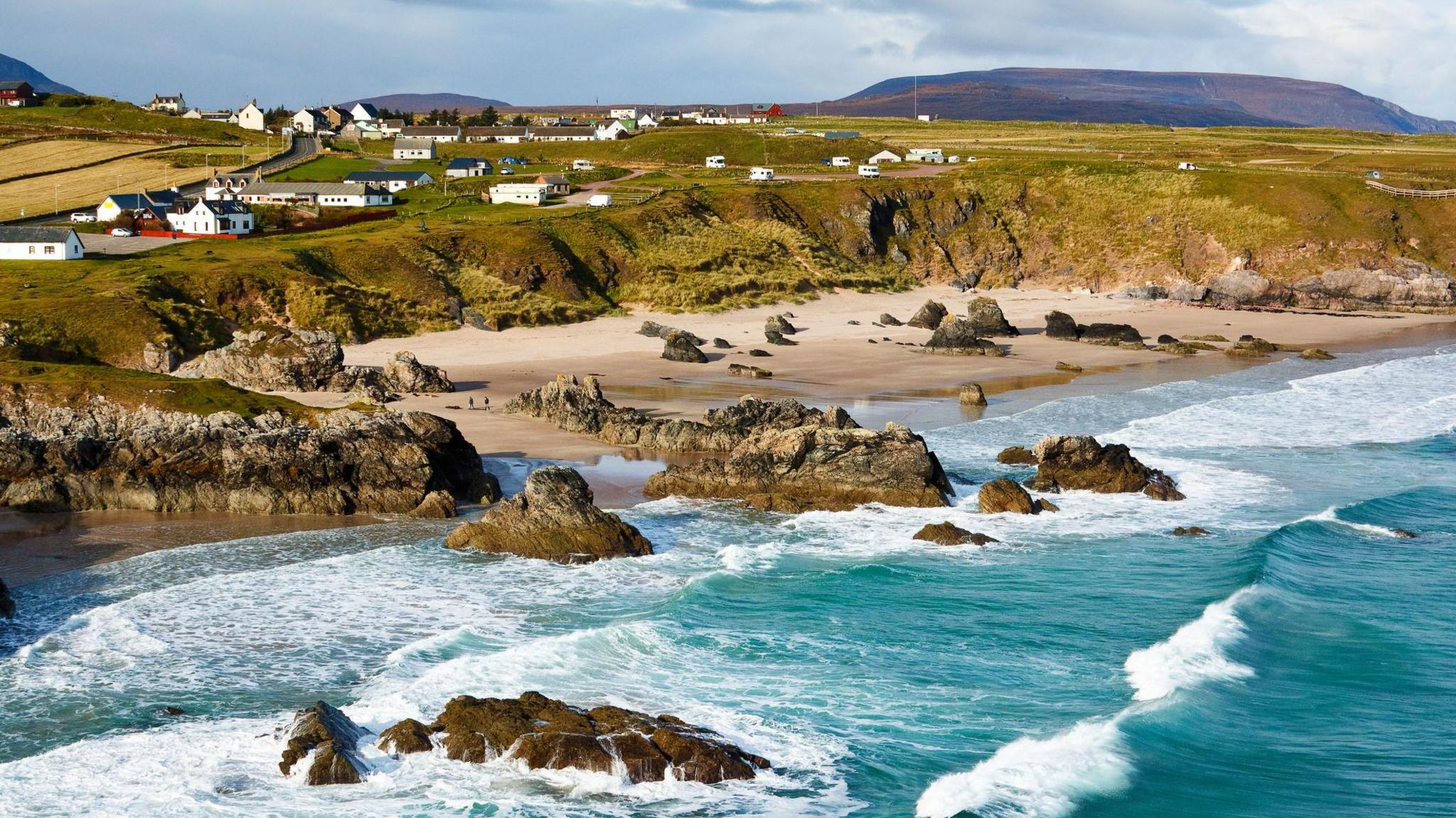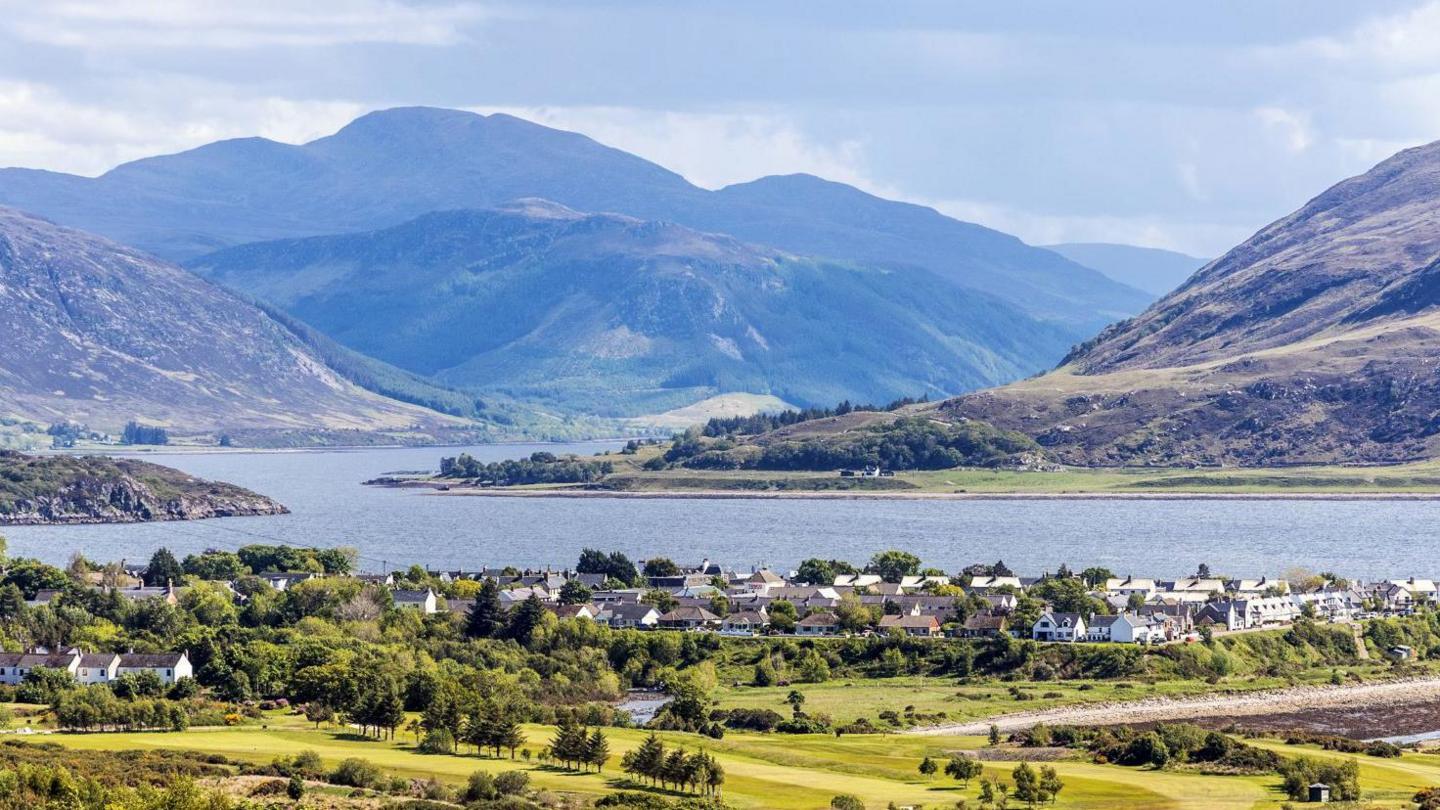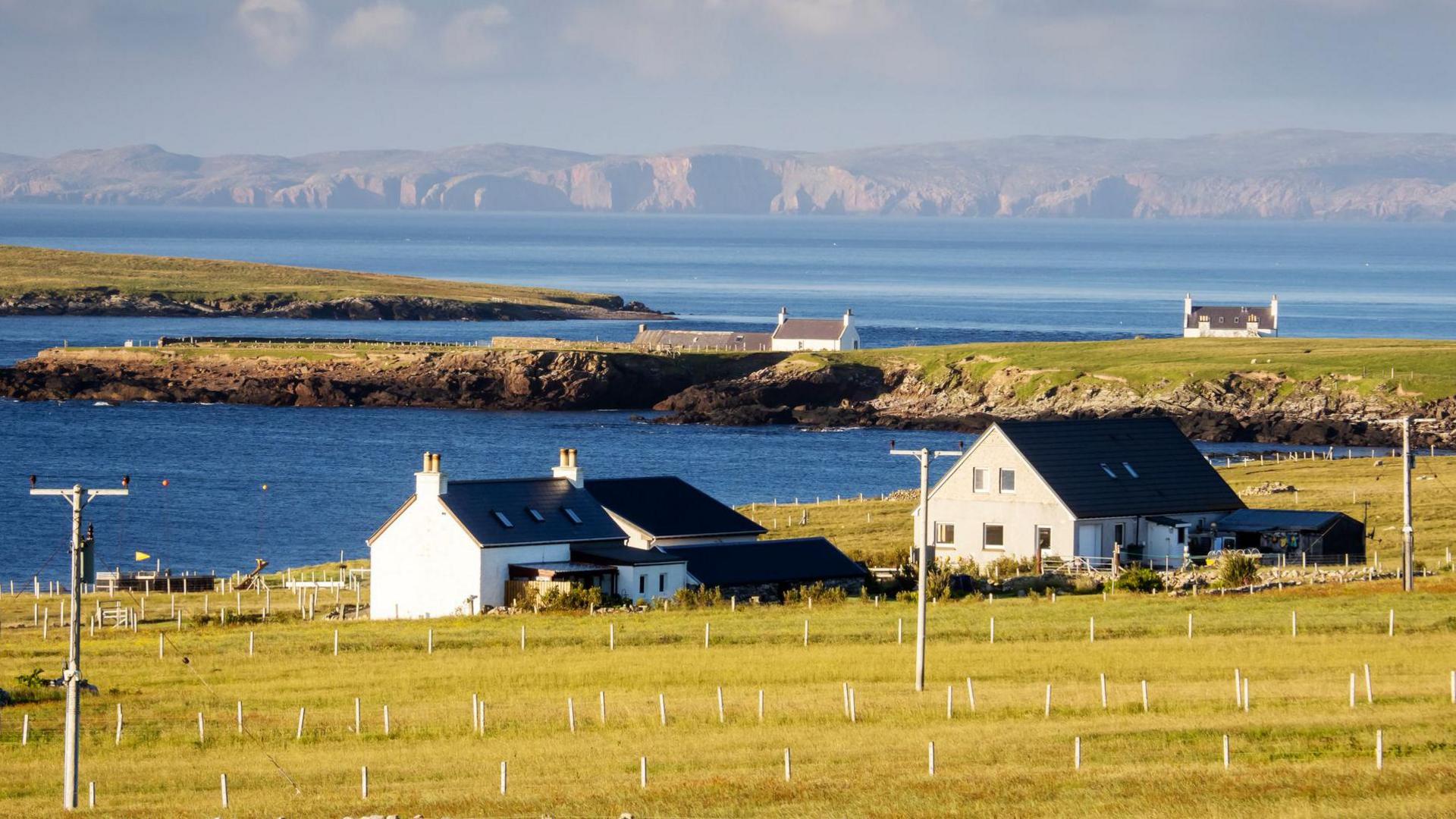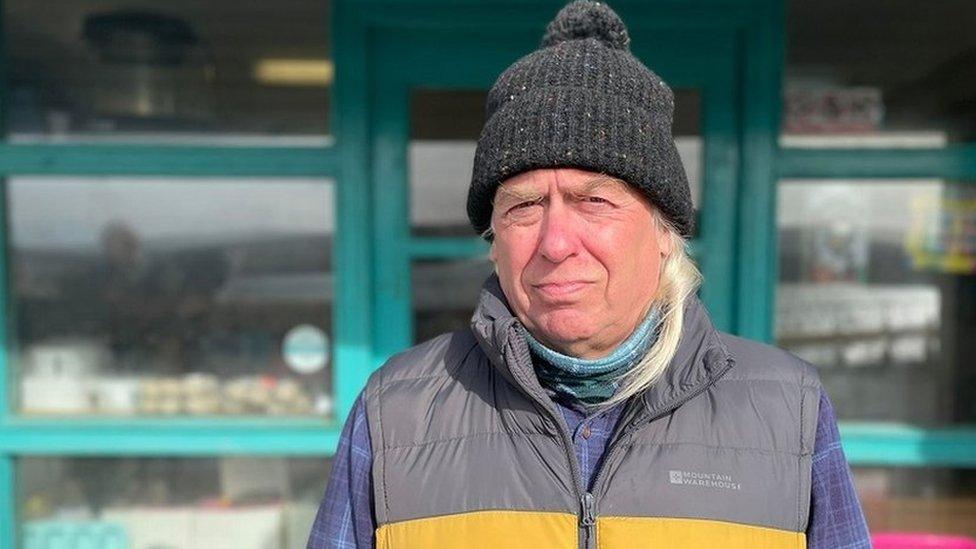Human rights under threat in rural areas - report

The Highlands was one of the regions the commission looked at
- Published
People in parts of Scotland face challenges accessing their human rights to health, housing and food, according to a new report.
The Scottish Human Rights Commission (SHRC) investigated the situation in Argyll and Bute, Hebrides, Highlands, Moray and Northern Isles.
It said it had gathered evidence of difficulties caused by a shortage of affordable housing, centralisation of health services, fuel poverty and unreliable public transport.
The Scottish government said it had taken action to address some of the issues raised in the report.
Teenage islanders worried they won't have a house in future
- Published12 July 2024
Chunk of Highlands 'needs island-style health care'
- Published26 January 2024
SHRC decided last year to carry out the study because it did not understand issues affecting rural and island communities as well as it did those in central Scotland.
The commission interviewed community leaders, campaigners, development trusts, teachers, crofters, lawyers, health workers and MSPs.
According to SHRC's report, external:
People in Orkney are turning down job offers because they cannot find a suitable home, and victims of abuse unable to find accommodation away from alleged offenders
Centralisation of health services leading to 14,000 patients a year from Caithness and Sutherland travelling to Inverness for care, including expectant mums for births
A lack of public transport in Skye and a road infrastructure that has remained unchanged for the last 20 years, despite an increase in visitors
Western Isles parents and carers of children and adults with learning disabilities travelling up to 500 miles weekly to access educational services
![In numbers:. Other findings according to SHRC's report [ 40% Of households in the Western Isles are in fuel poverty ],[ 40% Of working families in Highlands and Islands rely on food support services due to high costs ] [ 20 Locations SHRC visited. They included Dunoon, Elgin, Lerwick and Stornoway ], Source: Source: SHRC, Image: Lerwick in snow.](https://ichef.bbci.co.uk/news/920/idt2/idt2/2045fa77-5146-408d-b32b-3439fc90eeaf/image/460)
Human rights are devolved to Scotland, external by the Scotland Act 1998.
SHRC said across all rights examined it found not a single human right that met all the conditions of adequacy under international law.
It has made a number of recommendations to the Scottish parliament and Scottish government, including that urgent action should be taken to tackle homelessness, hunger and access to sexual and reproductive health services.
Chairwoman Prof Angela O'Hagan said the commission was very concerned about the poor state of economic, social and cultural rights.
She said: "Too many people in Highland and Islands are hungry, homeless, without access to healthcare, and the basics for everyday life.
"With this work, we are piloting a new way of monitoring, one that brings the commission closer to communities and enhances their voices and struggles.
"While we continue to develop this way of working, we expect that all duty-bearers will reflect carefully on the evidence found in this report, and the action now required from them to meet their human rights obligations."

Caithness campaigner Rebecca Wymer said the reported backed calls for increased healthcare provision
Caithness women's healthcare campaigner Rebecca Wymer said the report backed calls for increased local provision of obstetrics and gynaecology, services focused on the care of pregnant women, unborn babies as well as women's sexual and reproductive health.
In 2016, the maternity unit at Caithness General in Wick was downgraded from consultant-led to midwife-led.
Most first-time mothers are sent to Inverness' Raigmore Hospital for births.
Ms Wymer told BBC Radio Scotland's Lunchtime Live programme: "We have been working really closely with the Scottish Human Rights Commission for about two years banging the drum on basically what is in the report."
She added: "I don't think anybody who lives in the Highlands expects a full all bells and whistles specialist centre - everyone is happy to travel for specialist care.
"But women make up 51% of Scotland's population so gynaecology is not specialist care.
"Gynaecology is a basic human right and what we should be getting as a standard."
Sustainable healthcare
A Scottish government spokesperson said: "We recognise the rights to food, housing and health and that is why we have taken action to advance human rights in practice now, as well as to prepare the public sector for new duties in the future in relation to the rights highlighted in the report.
"We believe that no-one should have to compromise on food or other essentials and have published a plan, grounded in human rights, to tackle this."
They added that nine actions had been introduced to improve access to food and ensure fewer people need to turn to food parcels.
The spokesperson also said more than 10,000 affordable homes, external had been delivered across rural Scotland between April 2016 and March 2023.
And they said the formation of a National Centre for Remote and Rural Health and Care would support health and social care providers to establish long-term sustainable healthcare in rural and island areas.
Related topics
- Published11 October 2024

- Published26 October 2023

- Published14 March 2022
